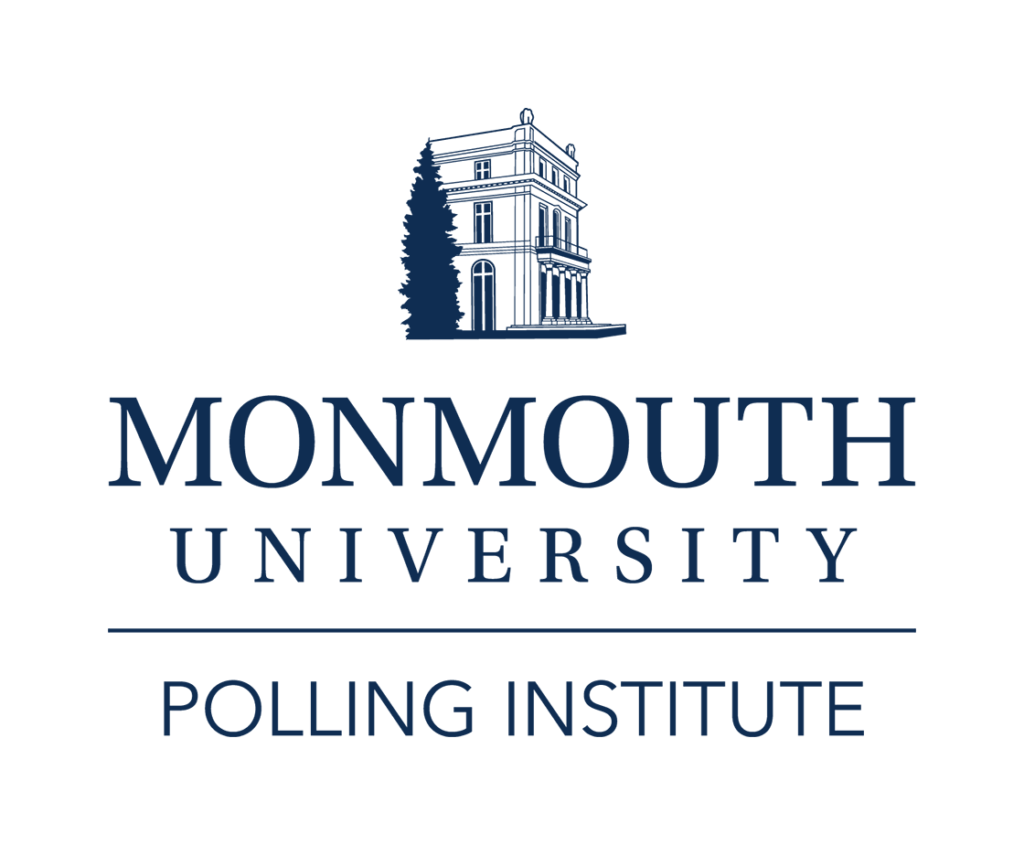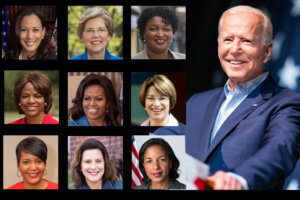West Long Branch, NJ – Hillary Clinton holds a commanding lead over Bernie Sanders in the South Carolina primary. This marks the first Monmouth University Poll of voters in the Democratic contest in this state. Clinton is seen as the stronger candidate on issues of concern to African-Americans in a primary where the majority of voters will be black.
Clinton holds a 69% to 21% lead over Bernie Sanders among likely voters in South Carolina’s Democratic primary. Martin O’Malley’s support stands at 1%, with 8% not having a preference at this time. Sanders does best among voters who identify themselves as independents, but he still trails Clinton by 53% to 35% with this group. Clinton holds a large 74% to 16% lead among self-described Democrats likely to vote in South Carolina’s open primary.
Clinton is seen as the candidate who can better address the concerns of African-Americans. Three-in-four say she would do an excellent (31%) or good (43%) job at this compared to just over half – 16% excellent and 36% good – who say the same of Sanders. Interestingly, black voters (75%) and white voters (72%) are equally as likely to trust Clinton to handle issues of concern to the black community. However, black voters (40%) are less likely than white voters (66%) to feel the same about Sanders.
“Sanders has been trying to make inroads with core Democratic constituencies, including black voters. South Carolina will be the first test of his appeal with that bloc. He is not faring well,” said Patrick Murray, director of the independent Monmouth University Polling Institute in West Long Branch, NJ.
The Monmouth University Poll also asked voters what type of job the two candidates would do regarding issues of concern to women. Clinton (47% excellent and 36% good) leads Sanders (17% excellent and 36% good) on this score. There are no significant differences by gender in these results.
Looking at the candidates’ fundamental strengths, likely South Carolina primary voters have overwhelmingly positive views of Clinton (81% favorable – 7% unfavorable) and largely positive views of Sanders (58% favorable – 13% unfavorable). O’Malley holds a split 18% favorable and 18% unfavorable rating, with two-thirds of Palmetto State primary voters having no opinion of him.
Overall, one-third (34%) of voters say they are completely decided on their choice – including 43% of Clinton supporters and just 18% of Sanders backers. Another 33% say they have a strong preference but are willing to consider another candidate, 11% register only a slight preference, and 22% say they are really undecided even if they name a preference at this time. At the same time, most Clinton (56%) and Sanders (66%) backers say they would not be unhappy if another candidate actually won the Democratic nomination.
The Monmouth University Poll was conducted by telephone from November 5 to 8, 2015 with 400 South Carolina voters likely to vote in the Democratic presidential primary. This sample has a margin of error of ± 4.9 percent. The poll was conducted by the Monmouth University Polling Institute in West Long Branch, NJ.
DATA TABLES
The questions referred to in this release are as follows:
(* Some columns may not add to 100% due to rounding.)
1. Who would you support if the presidential primary was being held today and the candidates for the Democratic nomination were – [NAMES WERE ROTATED]
| Nov. 2015 | |
| Hillary Clinton | 69% |
| Bernie Sanders | 21% |
| Martin O’Malley | 1% |
| (VOL) Other | 1% |
| (VOL) Undecided | 8% |
2. Which of the following best describes where your decision stands at this moment: I am completely decided on which candidate I will support, I have a strong preference right now but I am willing to consider other candidates, I have a slight preference among a group of candidates I like, or I am really undecided among a number of candidates?
|
Nov. | Clinton voters |
Sanders | |
| Completely decided | 34% | 43% | 18% |
| Strong preference | 33% | 33% | 45% |
| Slight preference | 11% | 11% | 13% |
| Undecided | 22% | 13% | 25% |
[QUESTION 3 WAS ASKED OF THOSE WITH A CHOICE; n=363, moe = +/-5.2%.]
3. How would you feel if someone other than [VOTE CHOICE] won the Democratic nomination – would you be very unhappy, a little unhappy, or would you be okay with it?
|
Nov. | Clinton voters |
Sanders | |
| Very unhappy | 16% | 18% | 9% |
| A little unhappy | 22% | 22% | 22% |
| Would be okay with it | 58% | 56% | 66% |
| (VOL) Depends | 2% | 3% | 0% |
| (VOL) Don’t know | 2% | 2% | 2% |
4. I’m going to read you a few names of people who are running for president in 2016. Please tell me if your general impression of each is favorable or unfavorable, or if you don’t really have an opinion. [NAMES WERE ROTATED]
|
Favorable | Unfavorable |
No | |
| Former Secretary of State Hillary Clinton | 81% | 7% | 12% |
| Former Maryland Governor Martin O’Malley | 18% | 18% | 65% |
| Vermont Senator Bernie Sanders | 58% | 13% | 29% |
[QUESTIONS 5 THROUGH 8 WERE ROTATED]
If elected President…
5/6. How good a job would [Hillary Clinton/Bernie Sanders] do addressing the concerns of African-Americans – excellent, good, only fair, or poor?
|
Hillary | Black voters | White voters | Bernie Sanders | Black voters |
White | |
| Excellent | 31% | 31% | 30% | 16% | 8% | 25% |
| Good | 43% | 44% | 42% | 36% | 32% | 41% |
| Only fair | 16% | 18% | 12% | 23% | 32% | 12% |
| Poor | 2% | 1% | 3% | 6% | 7% | 4% |
| (VOL) Don’t know | 8% | 6% | 13% | 19% | 20% | 17% |
7/8. How good a job would [Hillary Clinton/Bernie Sanders] do addressing the concerns of women – excellent, good, only fair, or poor?
|
Hillary | Women voters | Men voters | Bernie Sanders | Women voters |
Men | |
| Excellent | 47% | 47% | 46% | 17% | 15% | 20% |
| Good | 36% | 37% | 36% | 36% | 35% | 37% |
| Only fair | 10% | 8% | 11% | 22% | 22% | 23% |
| Poor | 2% | 1% | 3% | 8% | 6% | 10% |
| (VOL) Don’t know | 5% | 6% | 4% | 17% | 22% | 9% |
The Monmouth University Poll was sponsored and conducted by the Monmouth University Polling Institute from November 5 to 8, 2015 with a statewide random sample of 400 South Carolina voters drawn from a list of registered voters who participated in at least one South Carolina primary in 2012 or 2014, or in both the 2012 and 2014 general elections and indicate they will vote in the Democratic presidential primary in February 2016. This includes 279 contacted by a live interviewer on a landline telephone and 121 contacted by a live interviewer on a cell phone, in English. Monmouth is responsible for all aspects of the survey design, data weighting and analysis. Final sample is weighted for age and gender based on state registration list information on the pool of voters who participate in primary elections. Data collection support provided by Braun Research (field) and Aristotle (voter list and non-voter sample). For results based on the total sample, one can say with 95% confidence that the error attributable to sampling has a maximum margin of plus or minus 4.9 percentage points (unadjusted for sample design). Sampling error can be larger for sub-groups (see table below). In addition to sampling error, one should bear in mind that question wording and practical difficulties in conducting surveys can introduce error or bias into the findings of opinion polls.
|
POLL DEMOGRAPHICS (weighted) | |||
| 49% State primary voter | 41% Male | 13% 18-34 | 54% Black |
| 51% Other voter | 59% Female | 24% 35-49 | 43% White |
| 34% 50-64 |
3% Other | ||
| 30% 65+ | |||
Click on pdf file link below for full methodology and results by key demographic groups.




